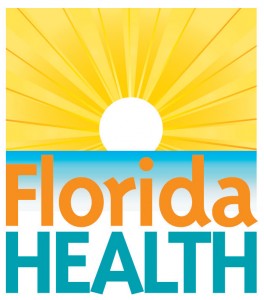Monkeypox… What is it?
BY DR. CARLA A FRY
KONKLIFE FEATURING PUBLIC HEALTH WRITER
 Monkeypox is a virus from the Orthopox family. Some of the other diseases associated with the virus include Smallpox and Cowpox. Although Monkeypox has some of the same symptoms as Chickenpox, it is not in the same varicella-zoster family, so the shingles vaccine is not considered effective for prevention. The Smallpox vaccine, which was administered until 1971, may afford some protection against Monkeypox.
Monkeypox is a virus from the Orthopox family. Some of the other diseases associated with the virus include Smallpox and Cowpox. Although Monkeypox has some of the same symptoms as Chickenpox, it is not in the same varicella-zoster family, so the shingles vaccine is not considered effective for prevention. The Smallpox vaccine, which was administered until 1971, may afford some protection against Monkeypox.
Symptoms of Monkeypox may include fever, fatigue, headaches, muscle aches, a sore throat, cough, swollen lymph nodes, and a rash that looks like pimples or blisters. Symptoms usually start three weeks after a person has been exposed to the virus, and almost everyone with Monkeypox will get a rash. Though the rash could appear in places such as the hands, chest, or face, it will typically appear near the genitals or anus.
Monkeypox is spread by close contact during intimacy such as oral, anal, or vaginal sex, contact with bedding or towels from an infected partner, and prolonged face-to-face contact (typically 2-3 hours).
To protect our community, it is important for everyone to do their part to prevent the risk of spreading the virus. Safe sex practices, limiting the number of sex partners, and avoiding close contact with anyone at high risk or symptomatic is a good start. Linens, towels, and clothing used by an infected person may also be a means of transmission, so it is a good idea to avoid sharing these items, wear gloves if contact is unavoidable, and disinfect items thoroughly before using them again.
The Jynneos vaccine is FDA approved, and used to prevent Smallpox and Monkeypox in adults 18 years and older who may be at high risk for infection. It is considered safe and effective for the prevention of Monkeypox, and administered in two separate doses 28 days apart. Vaccines will be administered to those in the highest risk groups first, then more broadly in the coming weeks.
Currently, there is no specific treatment for Monkeypox; however, there are antiviral medications previously utilized to protect against Smallpox that may prove effective. One, known as TPOXX, may be recommended for those who become very ill, and for individuals with a rash that is close to the rectum, urethral opening, and/or eyes. The efficacy of TPOXX for the treatment of Monkeypox is still under investigation, so use of this medication will remain limited to those with the highest risk of complications from the virus.
Individuals infected with Monkeypox should isolate themselves for a period of 21 days to avoid transmitting the virus to others. During this time, it is important to practice good handwashing, avoid scratching the rash/skin, and avoid sharing personal items such as towels, linens, clothing, toothbrushes, etc. Monkeypox typically goes away without treatment, though your doctor may prescribe medication to help with the itching.
Though Monkeypox doesn’t usually cause life threatening symptoms, it is uncomfortable with moderate to severe itching and body aches that may last for several days. If you believe you are at high risk for infection, have had close contact with an infected individual, or develop any of the symptoms above, please contact the Florida Department of Health in Monroe County at 305-293-7500.
This is an editorial piece written by Dr. Carla A. Fry PhD, MSN, RN, Senior Community Health Nursing Director at the Florida Department of Health in Monroe County. For more information about monkeypox, visit:
www.floridahealth.gov/diseases-and-conditions/monkeypox/index.html and Monkeypox | Poxvirus | CDC.
[livemarket market_name="KONK Life LiveMarket" limit=3 category=“” show_signup=0 show_more=0]
No Comment